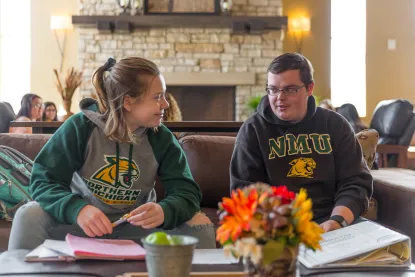Assessment of Learning
Roles and Responsibilities
Provost
The Provost and Vice President for Academic Affairs and Student Success (Provost) appoints a member of the faculty for one academic year who will serve as the Faculty Chair of Assessment of Learning (Chair) which includes chairing the AoL Committee. This is a renewable appointment. The Provost receives and reviews an annual summary report documenting the AoL work done in the academic year.
Faculty Chair of the AoL committee
The Chair serves as chair of the Assessment of Learning Committee (AoL Committee).
The Chair’s primary duties include:
- Convening the AoL Committee
- Leading the AoL Committee work in reviewing program assessment summary reports from across undergraduate and graduate education
- Reporting back to all submitting departments (by the Friday before the end of the fall semester) the AoL Committee’s feedback and recommendations for improvement
- Submit a comprehensive formal AoL Summary Report to Provost by the end of April each AY
AoL Committee
Members of the faculty and administrators make up the AoL Committee, with full-time AAUP and NMUFA faculty in the majority. The Committee is charged with review of program-level assessment across undergraduate and graduate education programs. The Committee receives AoL reports from departments and responds with constructive feedback approving and/or suggesting improvements for the work. The Committee is also responsible for identifying and/or delivering professional development content to further the University’s capacity in learning outcomes assessment.
Academic Departments
Department Heads submit reports with summary-level results of their annual assessment work to the Committee. Heads receive Committee feedback and:
- Respond to the Committee when necessary.
- Ensure that reports are disseminated appropriately in the department.
Heads may delegate related tasks, but will ultimately be responsible for ensuring the work is completed, accurate, and that data represent the full range of the students in their programs.
IE
The Office of Institutional Effectiveness (IE) will support the Chair and the Committee in completing the above duties however they see appropriate.

Statement of Purpose
Student learning is the core of Northern Michigan University’s mission.
For the purpose of continuously improving the student learning experience, instructors across the University must assess the learning that occurs in their classes.
This requires faculty, program directors, and department heads to analyze and evaluate assessment data and then take appropriate action to improve or enhance student learning.
Appendix
https://www.hlcommission.org/Policies/revised-criteria-for-accreditation.html
4.B. The institution engages in ongoing assessment of student learning as part of its commitment to the educational outcomes of its students.
4.B.1 The institution has effective processes for assessment of student learning and for achievement of learning goals in academic and co-curricular offerings.
https://www.hlcommission.org/Policies/assumed-practices.html
C. Teaching and Learning: Evaluation and Improvement
Faculty participate substantially in:
- oversight of the curriculum—its development and implementation, academic substance, currency, and relevance for internal and external constituencies;
- assurance of consistency in the level and quality of instruction and in the expectations of student performance;
- analysis of data and appropriate action on assessment of student learning and program completion.
Faculty control assessment of student learning in the following ways:
- Faculty members collect data on student learning in their courses and work at the department level on using the data for program development and improvement.
- The Chair is a member of the faculty.
- Faculty make up a majority of the Committee.
Faculty responsibilities for engaging in assessment work and for serving on University committees is detailed in Master Agreement and contracts.
